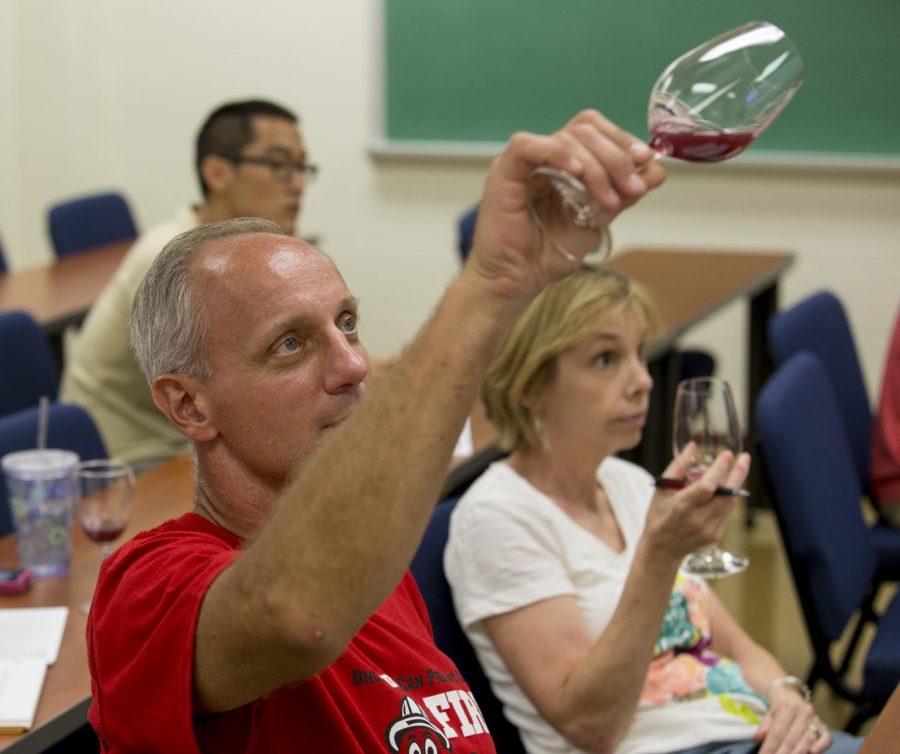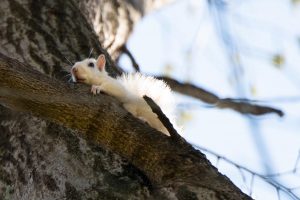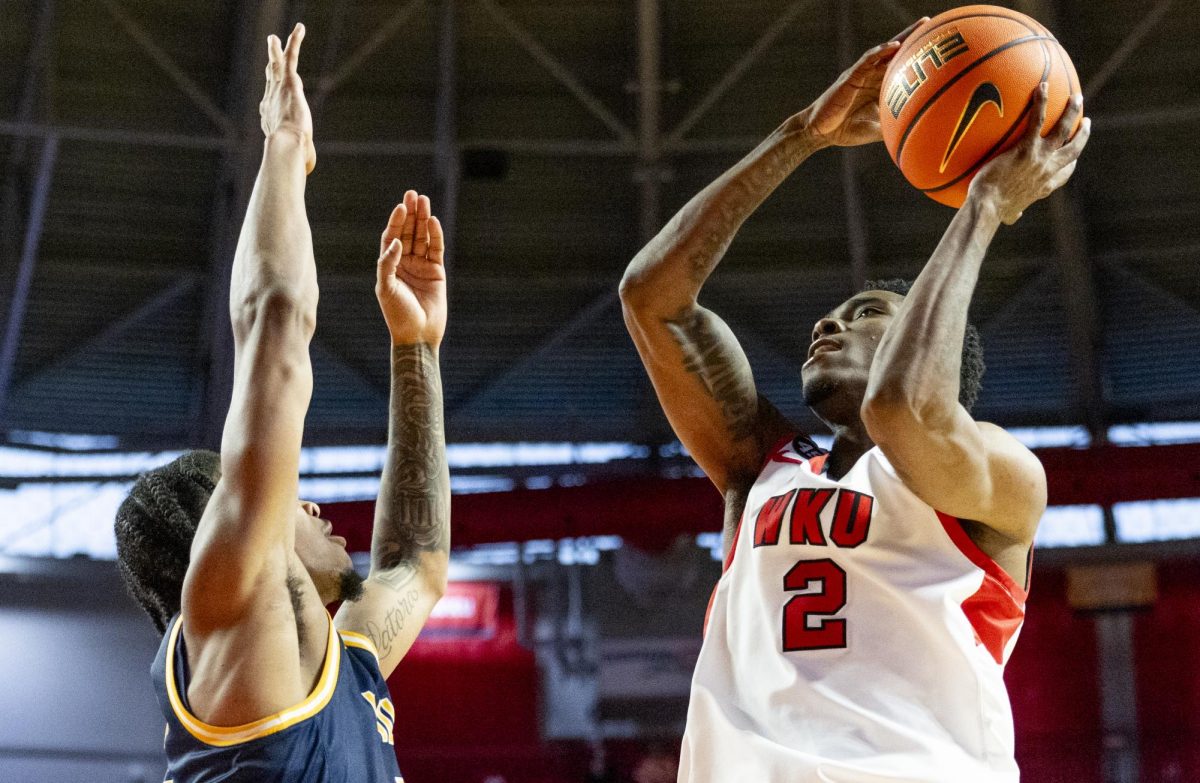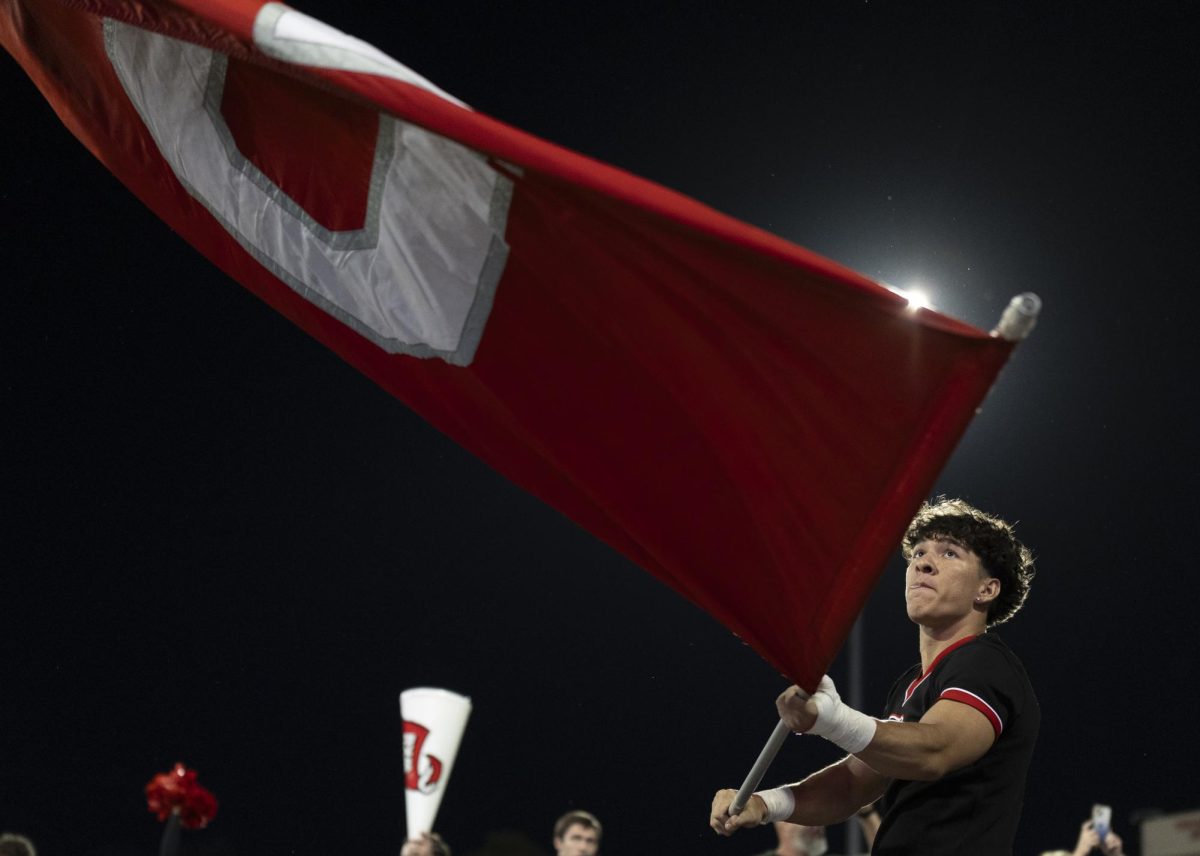WKU students drink wine for class
September 12, 2013
Jazz music permeated the room as Blake Layne divvied out wine glasses. As he poured the sweet, fruity substance for each student, a light chatter commenced.
“This is 100 percent Concord grape juice that’s been pasteurized. We have about 40 grape varietals on the WKU farm,” said Layne, a manager at Wino’s Depot and an instructor.
Layne, a graduate of University of California, Davis, teaches a wine fundamentals course at WKU.
Since coming to WKU, he has become a protector of the vineyards. His mission is to create wine untainted by man-made yeast.
Since the 1950s, scientists have been cultivating yeasts and bacteria so that producers have more control over the end result. Referred to as “wine terrorists” in the world of enology, or the study of wine, many areas are being depleted of their natural yeasts.
It is the native yeasts which create a wine’s “terroir.” This is a French concept meaning “sense of place,” which makes each wine unique, Layne said.
“…In a situation of terroir-driven wine-making, we are planting a vine, raising a vine free of chemical input as self-sustainable as possible,” Layne said. “Then you’re making a wine that has sense of place. You’re making a wine that someone who’s from the region of Tuscany looks back and says, ‘This is what it has always tasted like before this influx of modern science.’”
The majority of yeasts native to Kentucky have not been tampered with over the years, he said.
For the first time ever, there will be wine created from the WKU Farm, and this wine will be rich in terroir, something so valuable in the wine industry.
This will be a $300 billion market by 2016 as projected by “Business Wire.”
“I feel like I’m safeguarding the vineyard from outside influences because it’s extremely important,” Layne said. “I don’t even sleep thinking about how important it is to create something unique to our terroir.”
It is not just the cultivation of native yeasts that will make this wine so different. Through collaboration with Assistant Professor Lindsay Oesterritter’s ceramics class, pots are being designed in which the wine will be fermented.
Oesterritter said she hopes the pots, called kveris, will carry about five gallons of wine.
“We are making kveris based off of ones from the Georgian Republic,” she said. “It is a class of eight or nine students so we’re hoping to contribute that many.”
Each clay pot will be fired in the kiln on the WKU Farm and then coated with wax derived from bees on the farm. The beeswax will act as a natural microbial agent.
The class plans on having the pots completed within a couple of weeks.
Layne said each student has their own reasons for joining the class, making the subject matter more personal for each student.
Eddy Cuisinier, an instructor of French, has his own reasons for taking the course.
“I grew up in Paris, France. And wine has really been a part of my life the whole time with my father teaching me about the wine being special and the history behind it,” Cuisinier said. “I just want to learn more because it’s a way to connect better to my background.”
Cuisinier also said he is interested in learning more about where wine comes from.
“I enjoy a glass of wine, but I think I will enjoy it more if I can smell it, if I can understand the origin,” he said. “So it’s not just taking the class to drink wine but rather to understand the terroir…
“Terroir is so many things — it’s not just the place, the people. It’s an assembly of everything; pretty much the culture itself.”













